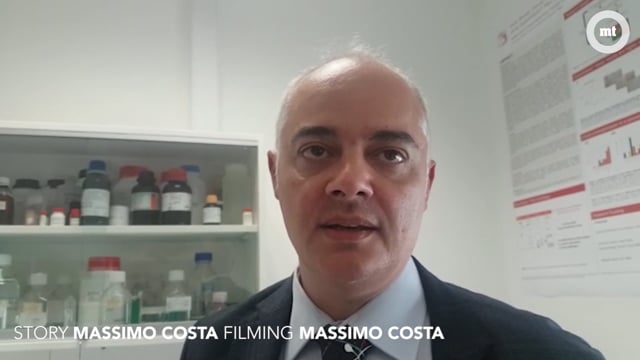[WATCH] Maltese scientists develop increased precision breast and intestinal cancer screening methods
The Accurate Cancer Screening Tests project at the University of Malta has led to the development of innovative cancer detection methods which are more sensitive and precise


Scientists at the University of Malta have developed a more precise and less invasive breast screening method which can also be adopted for the detection of intestinal cancer.
Research on the subject took place under the Accurate Cancer Screening Tests (ACT) project, and aimed to develop innovative methods of increase sensitivity and precision by which the characteristics of tumours can be determined.
Professor Godfrey Grech, who led the research, said at a press conference on Monday that the findings of the project will enable scientists to analyse tissue samples which are tiny or of low quality, as well as being able to examine blood cells which originate in tumours.
“The aim was to develop more precise and sensitive methods of determining the characteristics of tumours in samples, and even in cellular material - exosomes - which come from a tumour,” he said.
“My team adopted the method and made it innovative, so it can easily be used in laboratories.”
The research also led to the discovery of a number of new characteristics of intestinal cancer, which can now be validated based on patient data, and subsequently integrated into new technology.
“These new characteristics will give us more information on cancer, which will help in making treatment decisions,” Grech said.
Grech added that, after the scientists claim intellectual property rights over the discovery, this can then start the process for them to be licensed for commercial use.
Addressing the press conference, Health Minister Chris Fearne underlined how the University of Malta’s role had expanded from one which was almost exclusively limited to teaching, to one which now also involves significant research.
“The university’s main role used to be a teaching one, to produce graduates - it was akin to being the human resources planner for the country. This was an important role, but shouldn’t necessarily be its main one,” he said.
“We now recognise that the University of Malta has an important research role too, primarily in the health sector. Although we previously thought that our university was too small to carry out significant research - we in fact mostly did limited clinical research, not laboratory research - we are now changing this attitude. We have the potential to do groundbreaking research.”
Innovation parliamentary secretary Silvio Schembri highlighted that the results of the ACT project - which is funded by his secretariat through the Malta Council for Science and Technology's FUSION Research and Innovation Commercialisation programme - will be improving the quality of life of patients, in particular women, since the findings will lead and less invasive and more accurate tests for breast cancer.
Schembri noted that €8 million in research funds through the FUSION programme have to date been invested, and that the government is committed to ensuring that investments in this regard keep increasing.
MCST chairman Jeffrey Pullicno Orland highlighted that more applicants were seeking funds from the Council for research purposes, and emphasised the importance of increasing the studies done in connection with health matters.

.png)




















